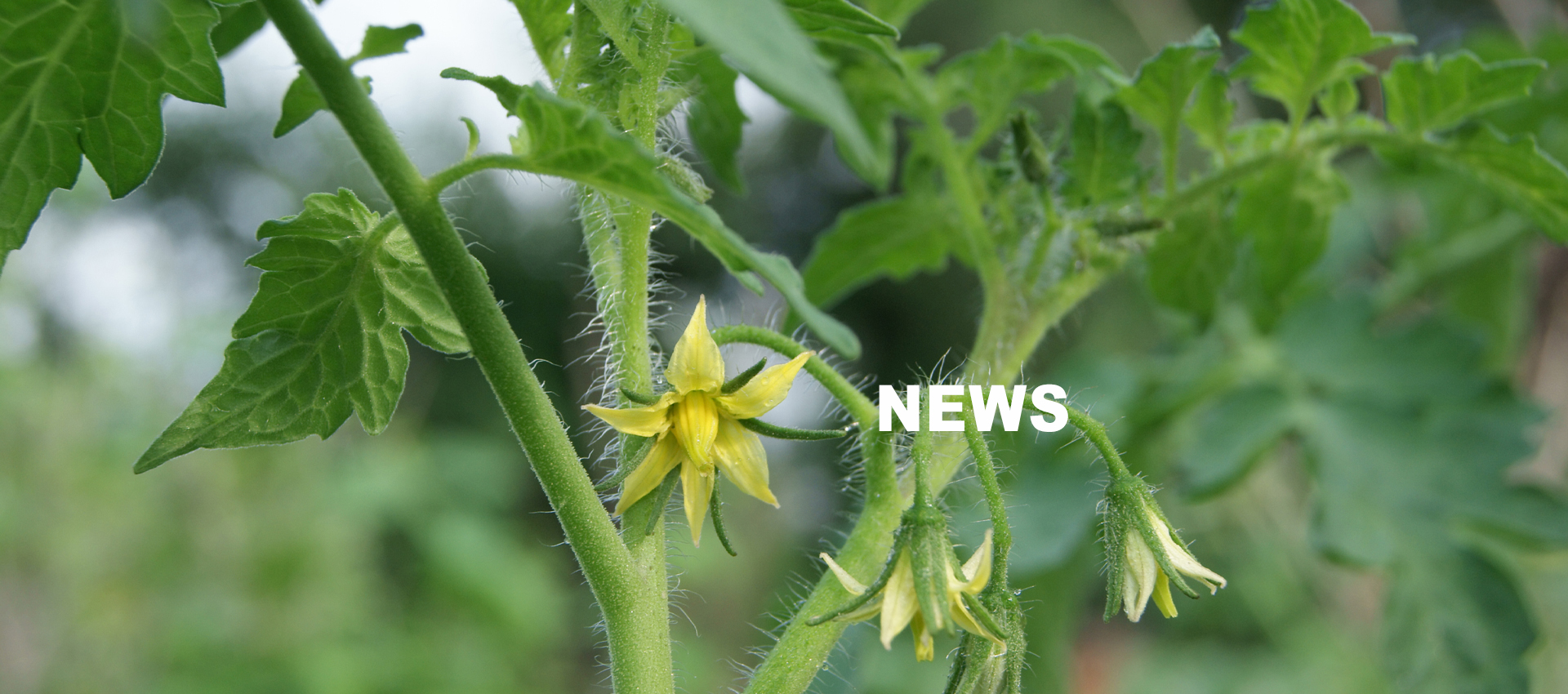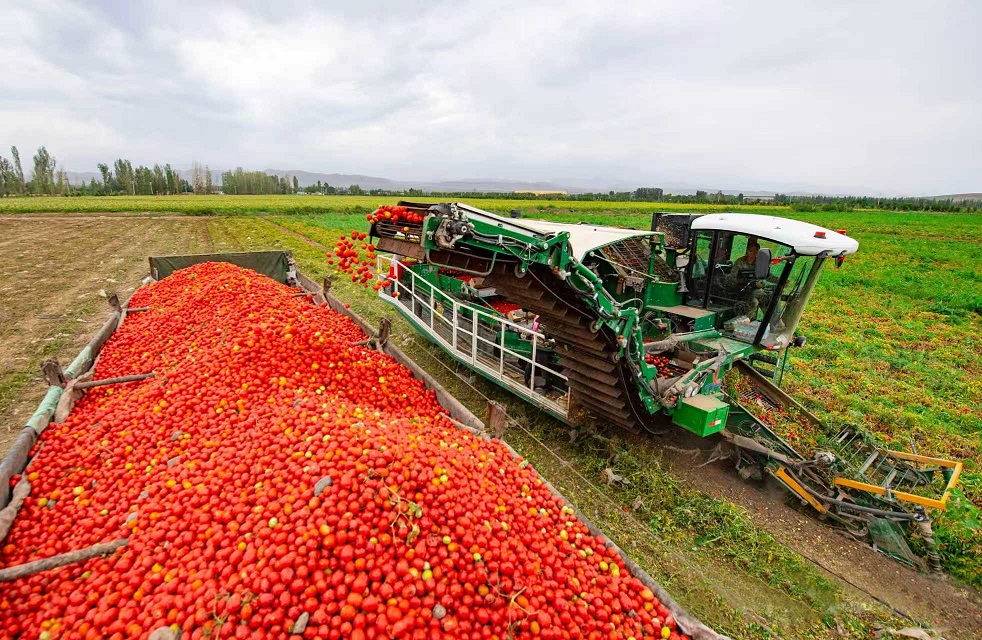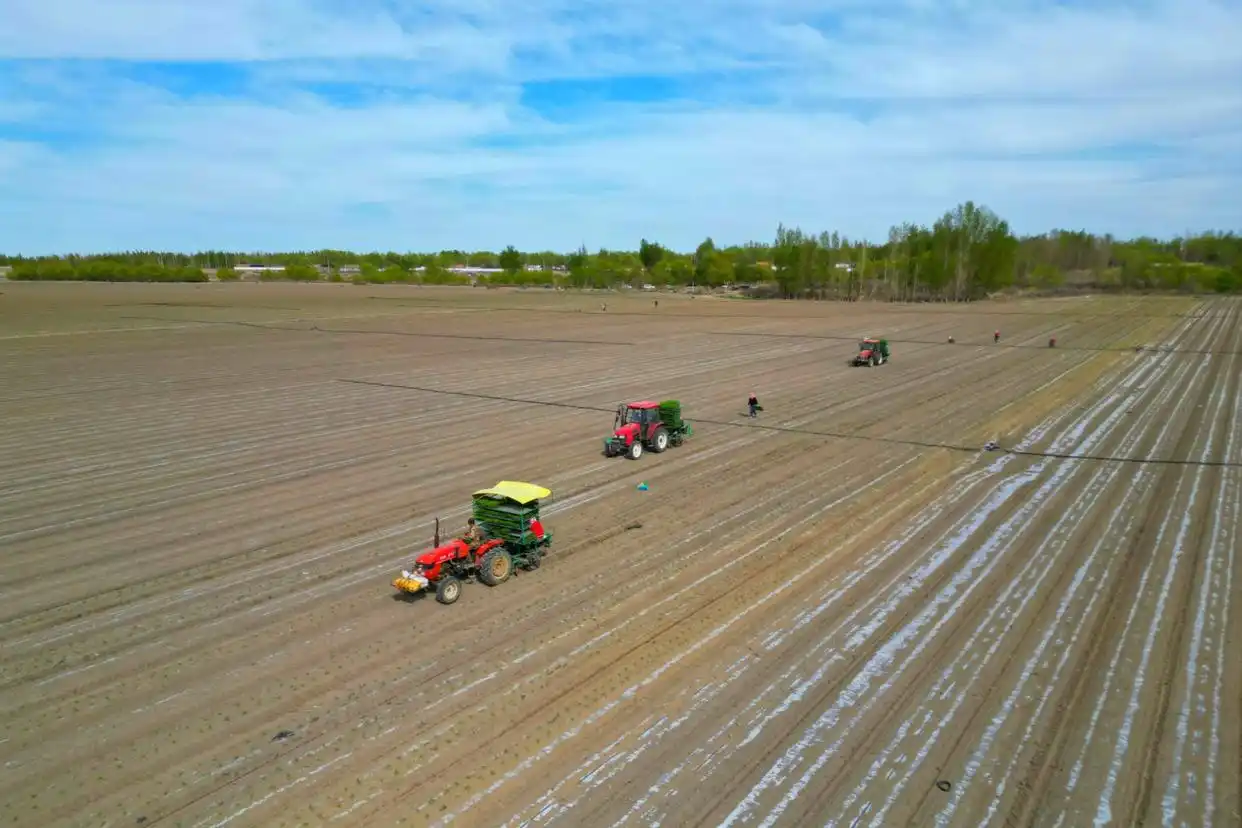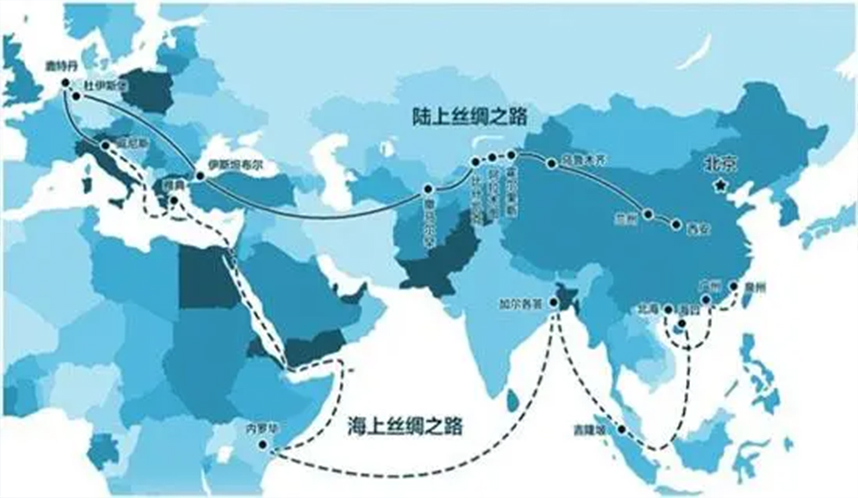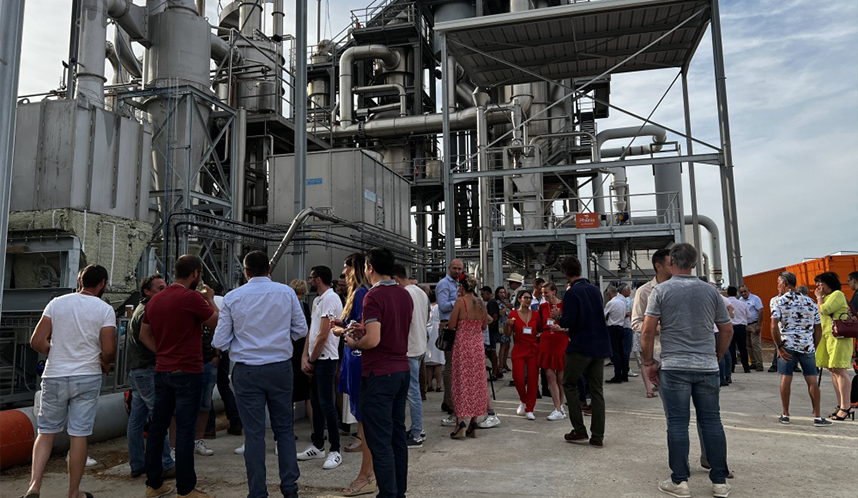
11
October
France: Phenix en Provence brand to use tomato in cosmetics!
Tomatoes – a super ingredient for cosmetics!
On 7 July 2023, several dozen people came to the Panier Provençal industrial processing site in Tarascon to celebrate the inauguration of Phénix en Provence's new facility.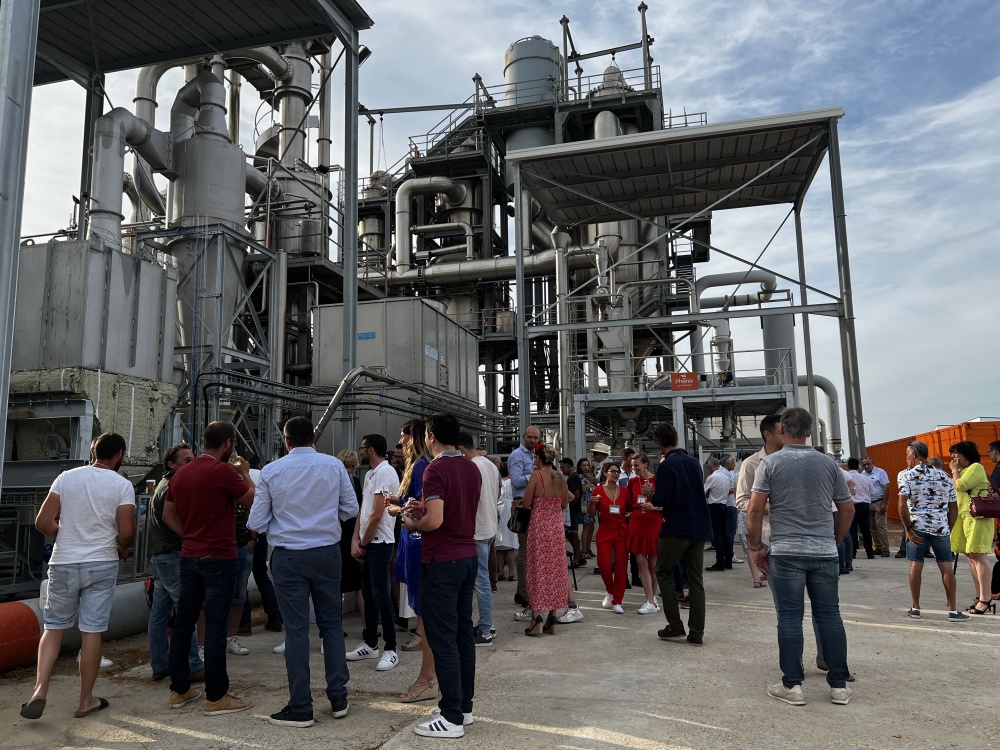 Who would have thought, just a few years ago, that the processing tomato value chain could be extended further? Leila Falcao was thinking about it, and then found the right people to help her do it. With the support of the Sonito, she found in CAPL a shareholder of choice to set up this project, and the industrial facility is now up and running. Now it's time to prepare ingredients for... cosmetics!
Who would have thought, just a few years ago, that the processing tomato value chain could be extended further? Leila Falcao was thinking about it, and then found the right people to help her do it. With the support of the Sonito, she found in CAPL a shareholder of choice to set up this project, and the industrial facility is now up and running. Now it's time to prepare ingredients for... cosmetics!
Leila Falcao is a Brazilian scientist. An "artist-chemist" in her own words. She can take credit for the idea behind Phénix en Provence, a joint venture between Inaturals, an independent R&D company (of which she is the founder) and the Coopérative agricole Provence Languedoc (CAPL). The aim? To go all the way to the end of the industrial production chain and add value to tomato by-products from the Panier Provençal factory in Tarascon. And why not launch into the world of cosmetics?
While the innovation on which the idea is based does indeed have scientific backup, Leila's idea is inspired by a 16th-century approach: the "doctrine of signatures". "There's this idea that likeness indicates the capacity to heal similar parts of the human body. The benefits of tomatoes for the skin have already been verified, against redness. So we decided to take the research a step further," she explained to those present at the inauguration, held on Friday July 7.
So much further that, thanks to the tests carried out, the active ingredients extracted from the dried and sorted tomato pulp were patented, then certified Cosmos (a French certification for natural and organic cosmetics) last year. The result is a wax, a hydrolat and an oil, all under the Intelligene® range (Intelligene Defense, Intelligene Water and Intelligene Oil respectively), whose certification was renewed the day before the inauguration.
The cosmetics are not made on site. At the Panier Provençal plant in Tarascon, the left-over by-products – i.e., skins and seeds – are dried and sorted, then sent to the AFSC in Nyons for the extraction of the active ingredients needed to prepare the cosmetics. For this last stage, contacts with brands have been drawn up by calling on Cosmetic Valley, the competitiveness platform and national coordinator of the perfume and cosmetics industry.
Valuable partners for an innovative tool
To achieve this, however, requires a precise technical process, supported by industrial equipment costing around two million euros, which the co-founder of Phénix en Provence described at the event.
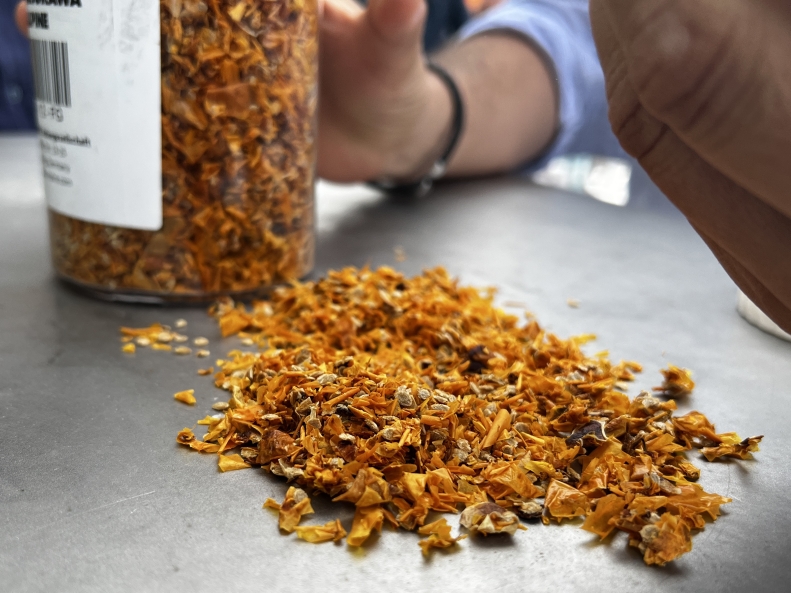 Sorting is conducted with the utmost precision, thanks to a machine originally used to sort gold. Seeds and skin are precisely separated. Once sorted, the tomato pulp is collected in big-bag conditionings.
Sorting is conducted with the utmost precision, thanks to a machine originally used to sort gold. Seeds and skin are precisely separated. Once sorted, the tomato pulp is collected in big-bag conditionings.
"Construction of the industrial plant began in January on the Panier Provençal site itself, right next to the centrifuge, so as to be as close as possible and directly recover the left-over by-products of processing, which come out at 85°C.They then pass through a rotary kiln, which heats to around 160°C, before being transferred to the grinder. The sorter is the most innovative part of our equipment, being the first water-free sorting machine in Europe. With water becoming increasingly scarce, we absolutely had to find a system that worked without it. It comes from Japan and is normally used to sort gold from the soil. Although it has been used for other purposes, this is the very first time it has been used in the food industry in Europe," explained Leila Falcao.
"Over a surface of 200 m², we set up a line to recover the moisture from the tomatoes, which is then sterilized and conditioned. This is what is called botanical water, meaning it can be used by cosmetics brands to enhance the naturalness of their products," she added.
In addition to the banks that supported it, the project was financed by the Ademe – with EUR 193,000, as part of the bio-waste management aid scheme – and the southern France regional authorities, with EUR 200,000, thanks to the Regional Attractiveness Plan that helps high-potential projects get off the ground. "This is a flagship project and a benchmark. Creating a joint venture between Le Panier and Phénix wasn't an easy task, but it's one that meets our major criteria", notes Jean-François Gonidec, President of Innov'Alliance.
For the future, a number of options are already being explored, such as the recovery of spent apple pomace, but not only that: "This year, we're also going to test the machine with two batches of grapes, and see what comes out, both in terms of products and co-products.This is the second stage of our rocket," enthuses CAPL Director Patrice Florentin. Phénix has also started looking at the waste material from tomato processing for the conventional market, since to develop cosmetic products for human skin, it is only looking at the organic part of processing tomato production. Could it be used to treat plants?
In any case, other outlets will have to be found to optimize the tool, since it will be only operating three 8-hour shifts per day during the 3 months of the processing tomato season. It will then be rented out to other companies to process their co-products. Cherries, strawberries, grapes, apples, pomegranates... The field of possibilities is vast!
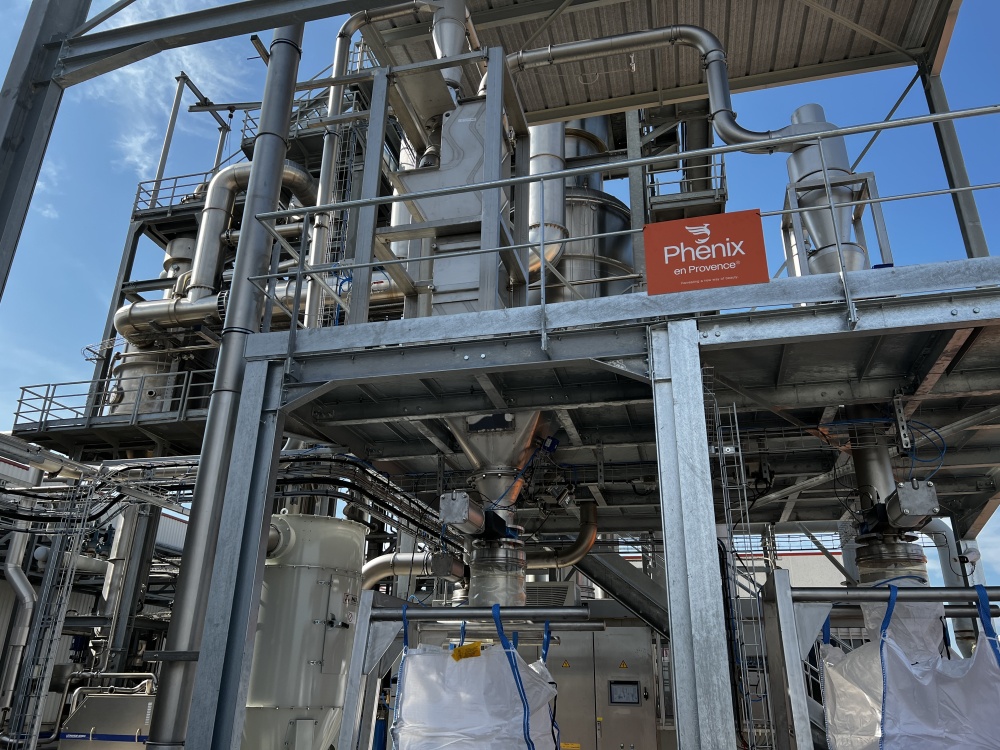
The industrial equipment was delivered very recently, just before the inauguration. At present, only the drying and sorting of pomace is carried out, but extraction may be considered in the future. Tests have already been conducted with apples, with a view to diversifying the plant's use with other by-products.
A widely acclaimed project
Among the qualities cited by speakers in their speeches, the most memorable are the realization of a start-up project, the valorization of by-products, the creation of added-value for an entire agricultural sector, from producers to Cosmetic Valley members, and the implementation of clean processes with low environmental impact.
"At our level, we need to play a part in rebalancing waste management. And, at the same time, we must recognize the efforts made by farmers. They can be better remunerated by integrating by-products into the value cycle," said the co-founder of Phénix en Provence.
Many people were on hand to congratulate the initiative. André Bernard, President of the Regional Chamber of Agriculture and of the Sonito, was one of the first to support the project. "That provided the spark," says Leila Falcao.
For farmers who have devoted their lives to growing tomatoes, the Brazilian scientist's determination and perseverance have proved that with collaboration, it is possible to achieve great things for the farming community: "On this site, we process the crops produced and go even further, helping to create value for farmers. After years of difficulties, the tomato industry has finally reached a point where all the options seem to be open."
The aim is to optimize the management of co-products, to better remunerate producers thanks to the CAPL's participation, and to ensure that by 2030 nothing is disposed of as waste.
Source: vaucluse-agricole.com
